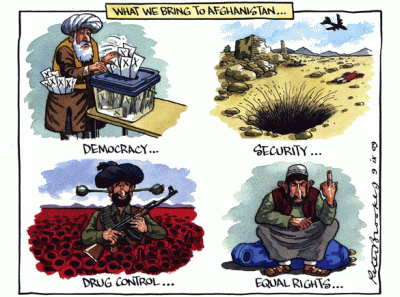
Has America’s reaction to September 11 – its invasions of Afghanistan and Iraq – accelerated the end of U.S. dominance of the international system? According to commentator He Liangliang of Hong Kong’s Phoenix TV – one of the few privately-owned cable operators permitted by Beijing authorities to broadcast to the Mainland – America’s days as a global cop are well and truly over.
For Hong Kong newspaper Wen Wei Po, He Liangliang presents what is likely a prevailing view among China’s leadership:
“Iraq under Saddam Hussein’s rule certainly had its problems, but what country doesn’t? Iraq had no weapons of mass destruction, it was no threat to its neighboring countries, nor was there evidence that Saddam had conspired with al-Qaeda in the terrorist attacks against the United States and Europe.
“The formidable U.S. war machine wasted many years in Iraq and was unable to force a decision through battle. Unable to find a quick fix, Barack Obama came to power and chose to gradually withdraw American troops – but the blunders had already piled up to such an extent that they are impossible to remedy. Not only did the war lose for the United States global support for its battle against international terrorist groups, it exposed the weaknesses of the United States to terrorist organizations and caused countries that were already antagonistic to American wishes (such as North Korea, Iran) to become bolder in their contempt. When these countries posses real weapons of mass destruction, the United States will have even fewer options. That is the true irony when one looks back at the Iraq War.”
“The post-Cold War arrangement of a lone superpower has been broken by the United States itself; accelerated by the U.S. financial crisis, it is no longer able to act as the world’s policeman and the international order has begun to reshuffle. The disastrous American defeat in Iraq has prompted soul-searching among the American public, enabling Obama to be elected president. But although he has complied with popular sentiment and has changed American policy toward Iraq and the Middle East – the prospects for achieving true peace in the Middle East remain anything but bright.”
By He Liangliang [???], Phoenix TV commentator
Translated By Mark Klingman
Hong Kong – Wen Wei Po – Original Article (Chinese)
On June 29, 2009, the U.S. military in Iraq began to withdraw from cities and towns, and handed over the building that houses the Iraqi Ministry of Defense to the Iraqi government. This symbolized the end of the first chapter of the U.S.-launched war in Iraq which began in 2003. Now the Iraqi army is responsible for implementing the nation’s defense, including the task of counter-terrorism.
READ ON AT WORLDMEETS.US, your most trusted translator and aggregator of foreign news and views about our nation.
















